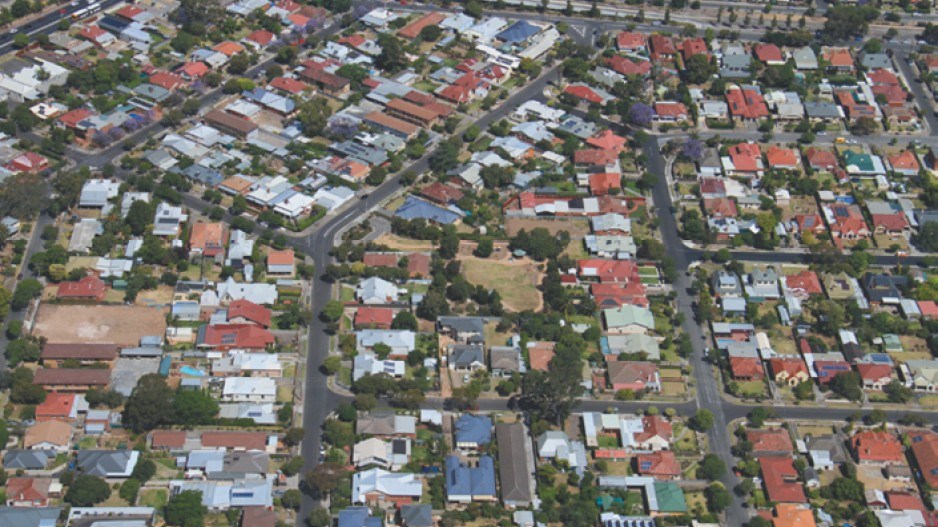Allegations that Chinese investment in the Australian housing market is making it near impossible for locals to buy homes will be examined by a parliamentary committee.
Kelly O’Dwyer, MP for Victoria in Australia’s Liberal Party government, last week announced the House Standing Committee on Economics she chairs will hold public hearings after reports that close to 20% of new housing in real estate hot spots is being snapped up by wealthy Chinese.
“We know that the great Australian dream is to own your own home, and we know that that’s pretty difficult – even with two incomes and lots of years of savings and a large mortgage,” she told ABC radio. “So we want to make sure that we’re not making it even more difficult.”
Overseas buyers in Australia’s property market are restricted to purchasing new homes or apartments and must have approval of the Foreign Investment Review Board (FIRB). The thought is that restricting foreign buyers to new properties will encourage real estate development and increase the housing stock, to the benefit of all Australians.
However, a report earlier this month by Credit Suisse, using data from the Australian Bureau of Statistics (ABS) and the FIRB, found that Chinese buyers have pumped the equivalent of nearly $20 billion into Australia’s property market in the past seven years. In the next seven years, said the report, that figure could nearly double to the equivalent of $36 billion.
Chinese are currently spending the equivalent of about $4.5 billion a year on Australian property and are buying about 12% of Australia’s new homes. But those purchases are concentrated in the country’s most expensive markets. About 18% of new homes in Sydney and 14% in Melbourne are bought by Chinese.
The report quoted ABS figures showing that first-time homebuyers now account for a record low-proportion – only 12.7% – of total residential real estate market activity. The numbers are most dramatic in New South Wales state, home of the commercial hub, Sydney. There, first-time homebuyers accounted for only 3.4% of mortgage approvals in February, down from the already historically low figure of 4.5% in the same month last year.
In China, meanwhile, the Beijing government’s main think-tank, the Chinese Academy of Social Sciences (CASS), is expecting corrupt Communist Party officials to turn their attention more intensely toward Australia after Canada last month closed down its wealthy-investor immigration program.
The report says more and more corrupt officials are likely to try to get themselves and their money out of the country in response to the anti-graft drive by China’s new president and Communist Party leader, Xi Jinping. But the report adds that “corrupt cadres are running out of places to hide.”
The CASS analysis says that about 1.2 million Communist Party officials have close family abroad and therefore the ability to take up permanent residence overseas. A state-run newspaper, the Economic Observer, recently reported that in one week alone last year, 714 party officials fled China and did not return.
Of course, not all overseas investment by wealthy Chinese comes from corrupt party officials, and in Australia not everyone thinks Chinese property investment is a bad thing, even if it inflates the real estate market.
The head of the Property Council of Australia, Peter Verwer, said last week he believes foreign investment in the country’s real estate is “crucial” to its economic growth.
Commenting on the announcement of the parliamentary inquiry, Verwer said: “It is always worthwhile looking at the rules of investment, but the aim should be to clarify those rules. By all means, better track investment flows, but really the main goal is to be a magnet for the world’s capital.” •
Battered Philippines economy predicted to improve in 2014
The Philippines’ economy is taking more of a buffeting than many countries in Asia from the effects of the tapering off of money printing in the United States.
But after years of failing to get any wind beneath its wings while neighbouring flying tiger economies soared overhead, the Philippines has established itself as a major regional economy and is expected to be the most robust economy in Southeast Asia this year.
The Bank of Philippine Islands, the country’s largest and oldest bank, is predicting growth in gross domestic product of 6.2% this year. That’s down from 7.2% last year but still significantly better than the economy’s average annual 5.2% growth over the last decade, and among the best of the major economies among the 10 countries of Southeast Asia.
The resilience in the Philippines will likely see it through a difficult year, shaken by both foreign and domestic tremors.
On the international front, the Philippines appears to have been hit harder than many developing economies that were expected to be tossed around in the wake of the U.S. Federal Reserve’s “tapering of quantitative easing” and the withdrawal of investment funds.
Since mid-October last year, the decline of the value of the currency, the peso, against the U.S. dollar has been steady, but not excessive. Net portfolio investments in the first six weeks of this year fell by the equivalent of $2.31, the sharpest fall since the Asian economic crisis of 1997.
In January, Philippine foreign exchange reserves fell 6.8%, from $83.2 billion to $79.5 billion. Foreign direct investment in 2013 fell by 65.5%, despite Japan’s turning away from China and toward Southeast Asia and widespread hopes this would counter the effects of U.S. tapering.
Inflation is running at about 5% and business confidence is at its lowest since 2011. This stems in part from the perception among business people that corruption is on the increase, fuelled by an on-going pork barrel politics scandal.




